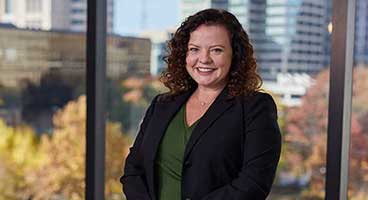 https://edwardjones-stage.xcc.smashfly.io/wp-content/uploads/sites/2815/2023/04/mainstreetblog_preview.png
200
368
Symphony Talent
https://cdn-static.findly.com/wp-content/uploads/sites/936/2020/09/Careers-logo_9-15-NEW-SVG.svg
Symphony Talent2023-04-13 19:25:102023-04-13 19:25:10Edward Jones: Where Main Street and Amazon Meet
https://edwardjones-stage.xcc.smashfly.io/wp-content/uploads/sites/2815/2023/04/mainstreetblog_preview.png
200
368
Symphony Talent
https://cdn-static.findly.com/wp-content/uploads/sites/936/2020/09/Careers-logo_9-15-NEW-SVG.svg
Symphony Talent2023-04-13 19:25:102023-04-13 19:25:10Edward Jones: Where Main Street and Amazon MeetDonor-advised Funds: A Smart Way to Make a Lasting Impact
Thought Leadership:
Donor-advised Funds: A Smart Way to Make a Lasting Impact
Share this post:

With so many people facing financial and health struggles due to the pandemic, charitable giving and philanthropy are more popular than ever. There are many ways to support a cause – donating time by volunteering, giving items directly to a charity or contributing money. How one gives is a personal choice, but for those who choose to donate financial support, they may find their contributions go further with the use of a donor-advised fund (DAF).
What is a donor-advised fund (DAF)?
A DAF is a charitable-giving tool that allows a client to make an irrevocable contribution to the fund, for which they receive an immediate tax deduction. Over time, they can direct grant requests to IRS-approved, public charities. The minimum initial contribution typically varies by firm. At Edward Jones, the Charitable Gift Fund has a $10,000 minimum.

Who should consider a DAF for charitable giving?
A DAF can be a powerful tool for maximizing a client’s charitable impact in certain situations – for example, if they want to give to charity and:
- They want their charitable giving to be tax-deductible, but they don’t give enough each year to itemize your deductions. If they plan to make consistent charitable contributions, they may consider combining several years’ worth of planned giving into a single DAF contribution. This may enable them to itemize their taxes and realize a larger deduction in the current tax year. And they can request a grant be made from the DAF to the charities of their choice over time. Remember, they get the tax deduction in the year they contribute to the DAF and not when the money is granted from the DAF to the charity.
- They own investments that have significantly increased in value. Contributing appreciated securities directly to a charity allows them to avoid paying taxes on the capital gains. This means the charity receives more of the proceeds than if they were to sell the security and then gift the after-tax proceeds. They can also take an income tax deduction for this type of contribution. However, many charities are not set up to handle this type of gift, so transferring the appreciated securities to a DAF and then granting to the charities of their choice is a good way to use this strategy.
Table: Giving $100,000 of stock with $90,000 of long-term capital gains to charity
Given to DAF Sold for cash Capital Gains Tax 0 $18,000 Sold for Charity $100,000 $82,000 - They have experienced an unusually high-income year. If they sold a business, exercised stock options, executed a Roth conversion or otherwise received extra income and have been considering philanthropy, it may be a good time to give. Typically, in high-income years, their marginal tax rate is also higher. This means they’ll generally get a bigger tax benefit from charitable donations made this year versus subsequent, lower-income years. Clumping future donations into this year and making grants over time from a DAF may increase their benefits as well as their impact on the charitable organizations they choose to support.
How your clients can incorporate a DAF as part of their financial strategy
In addition to the potential tax benefits listed above, a DAF has the following benefits, depending on how a client chooses to use it:
- The opportunity to grow their charitable gifts over time, tax-free. A DAF allows them to invest their contributions, providing an opportunity for the money to grow. Additionally, this growth is not taxable to them, the DAF or the charity that receives the grant. When determining the investment allocation in their DAF, consider the appropriate amount of investment risk for the DAF and how long they expect the money to last.
- Streamline tax reporting. For those who itemize their taxes, keeping records throughout the year can be a burdensome process. If a client plans to give to multiple charities throughout the year, using a DAF may streamline their record keeping. Donating first to a DAF and then granting to multiple charities allows for a single donation receipt.
- Share the values of charitable giving. During a client’s lifetime, they may wish to pass along their giving activities to their children or loved ones. DAFs can allow for joint or supervised charitable giving. Giving money to a DAF removes it from their estate and may help alleviate intergenerational conflict around subsequent charitable grants.
- Leave a legacy. A DAF can be a beneficiary of a will, trust, annuity, insurance contract, retirement plan or investment account. The DAF also allows a client to name a successor older than 18, such as a child or spouse who can continue in their spirit of giving. Alternatively, they can direct the DAF to continue making grants to charities of their choice for a period of time. By donating amounts over the estate tax exclusion (2021 federal estate tax exclusion: $11.7 million per person) to the DAF, they may be able to avoid the estate tax and receive an income tax deduction.
- Provide an alternative to a family foundation. While family foundations offer more control over investment options, administration and granting, DAFs can offer many of the same benefits at a lower cost to set up and maintain.
- Evaluate a charity’s fiscal responsibility over time. Rather than giving a charity a single lump-sum donation, a client may want to give smaller amounts over time while evaluating the charity’s ability to fulfill its stated objectives. By contributing the full amount to the DAF in a single year, they realize any potential tax benefits upfront. Their stable grants could help the charity plan its budget.
- Remain anonymous to the charities they support. While some people may wish to maintain a close relationship with each charity they support, others may find the resulting volume of solicitations undesirable. A DAF can allow them to remain anonymous to the charity if they wish.
- In memoriam giving. A DAF can allow a client to honor a loved one’s legacy in two ways. They can designate a grant from their existing DAF to be made in memory of the loved one, or a new DAF can be set up in their memory for friends and family to make contributions.
- Ensure the charities the client chooses to support are qualified by the IRS. A third-party administrator is responsible for day-to-day operations of the DAF. As part of their services, they ensure the charity is approved by the IRS before fulfilling the grant request to make certain the client’s donations are eligible for an income tax deduction.
Tradeoffs of using a DAF
DAFs have several key benefits, but there are important tradeoffs to consider:
- Contribution is irrevocable. Once a client contributes to their DAF, they cannot access that money for anything other than charitable giving. Grants can only be made to IRS-approved charities.
- Investment risk. While the amount of investment risk the client chooses for their DAF contributions depends on the portfolio selected, every portfolio will carry some degree of investment risk. It’s important to explain this risk to ensure the benefits of the DAF outweigh the risks.
- Lower levels of control. While the DAF can be cost effective and offers streamlined administration, it does restrict the available range of investments, the donor’s ability to hire individuals to administer the program and the ability to grant money to individuals or private charities. If a client wants more control, they may want to consider other giving strategies.
- Investment management and other fees. While a DAF is a low-cost alternative to a private foundation, it does still require fees. Therefore, it is generally not recommended to use a DAF to make a cash contribution and grant all the money to a single charity in a single year. It would be more cost effective to give the money directly to the charity
- No contributions from qualified charitable distributions (QCDs). After age 72, individuals must take required minimum distributions (RMDs) from some retirement accounts, most of which are taxable. However, clients who do not need this income can forgo this tax by designating the RMD as a QCD and directing the retirement account to distribute the money directly to a charity. Current IRS rules prohibit QCDs from being placed in a DAF.
- Giving back. Paying it forward. Making a difference. However one defines it, many investors share the goal of supporting causes with a purpose – now more than ever. At Edward Jones, being able to offer our own DAF, the Edward Jones Charitable Gift Fund, is the smart answer for many of our clients. And, it’s one more way we stay committed to our purpose of partnering with clients for positive impact to improve their lives, and together, we better our communities and society.
Important information:
This information is for educational and illustrative purposes only and should not be interpreted as specific investment advice. Investors should make investment decisions based on their unique investment objectives, risk tolerance and financial situation.
Edward Jones, its employees and financial advisors cannot provide tax or legal advice. Investors should consult an attorney or qualified tax advisor regarding their situation..
Related Posts
 https://edwardjones-stage.xcc.smashfly.io/wp-content/uploads/sites/2815/2023/04/mainstreetblog_preview.png
200
368
Symphony Talent
https://cdn-static.findly.com/wp-content/uploads/sites/936/2020/09/Careers-logo_9-15-NEW-SVG.svg
Symphony Talent2023-04-13 19:25:102023-04-13 19:25:10Edward Jones: Where Main Street and Amazon Meet
https://edwardjones-stage.xcc.smashfly.io/wp-content/uploads/sites/2815/2023/04/mainstreetblog_preview.png
200
368
Symphony Talent
https://cdn-static.findly.com/wp-content/uploads/sites/936/2020/09/Careers-logo_9-15-NEW-SVG.svg
Symphony Talent2023-04-13 19:25:102023-04-13 19:25:10Edward Jones: Where Main Street and Amazon Meet
Edward Jones Recognized for Exceptional Training Program
 https://edwardjones-stage.xcc.smashfly.io/wp-content/uploads/sites/2815/2022/02/blog-sonia-featured.jpg
200
368
ndowney
https://cdn-static.findly.com/wp-content/uploads/sites/936/2020/09/Careers-logo_9-15-NEW-SVG.svg
ndowney2022-02-14 19:14:332022-02-14 20:09:34Make Your Version of Your Own Dream
https://edwardjones-stage.xcc.smashfly.io/wp-content/uploads/sites/2815/2022/02/blog-sonia-featured.jpg
200
368
ndowney
https://cdn-static.findly.com/wp-content/uploads/sites/936/2020/09/Careers-logo_9-15-NEW-SVG.svg
ndowney2022-02-14 19:14:332022-02-14 20:09:34Make Your Version of Your Own Dream https://edwardjones-stage.xcc.smashfly.io/wp-content/uploads/sites/2815/2022/02/blog-helen-featured-1.jpg
200
368
ndowney
https://cdn-static.findly.com/wp-content/uploads/sites/936/2020/09/Careers-logo_9-15-NEW-SVG.svg
ndowney2022-02-14 18:55:082022-02-14 19:10:39It's Not About Balance. It's About Work-life Integration.
https://edwardjones-stage.xcc.smashfly.io/wp-content/uploads/sites/2815/2022/02/blog-helen-featured-1.jpg
200
368
ndowney
https://cdn-static.findly.com/wp-content/uploads/sites/936/2020/09/Careers-logo_9-15-NEW-SVG.svg
ndowney2022-02-14 18:55:082022-02-14 19:10:39It's Not About Balance. It's About Work-life Integration.Copyright © 2023 Edward Jones.
At Edward Jones, we are building a place where everyone feels like they belong. Our human-centered culture calls upon us all to treat every individual with dignity and respect while celebrating what makes us unique, which we show as an equal opportunity employer committed to diversity, equity, and inclusion. Edward Jones does not discriminate on the basis of race, color, sex (including sexual orientation, gender identity and pregnancy), religion, national origin, age, disability, veteran status, genetic information, citizenship status or any other basis prohibited by applicable federal, state, provincial, or local law in employment decisions such as hiring, compensation, benefits, transfers, promotions, leaves, training, performance expectations, development opportunities, and corrective action. Qualified applicants with arrest and/or conviction records will be considered for employment in a manner consistent with applicable federal, state, or local law, including but not limited to the St. Louis "Ban the Box" law, the San Francisco Fair Chance Ordinance, the Los Angeles Fair Chance Initiative for Hiring and the New York City Fair Chance Act.
Edward Jones is committed to providing accessible employment and developing an inclusive culture. Should you require accommodation at any time in the application for employment or during your employment, please contact us at hqfeedback@edwardjones.com.




